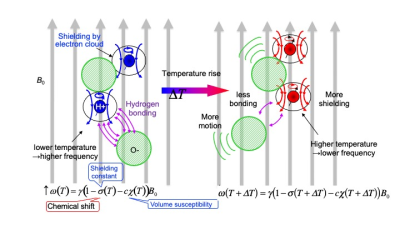Weekend Course
Brain Thermometry: MR Measurements, Modeling & Clinical Applications
ISMRM & ISMRT Annual Meeting & Exhibition • 04-09 May 2024 • Singapore

| 13:15 |
An Introduction to Thermoregulation in the Human Brain
Caroline Le Ster
Brain temperature is a balance between metabolically
generated heat and heat dissipation through perfusion. In
this presentation, the general principles of
thermoregulation at the body and at the brain levels will be
detailed, along with physiologically occurring spatio-temporal
fluctuations.
|
|
| 13:45 |
 |
How To Measure Brain Temperature Using MR
Kagayaki Kuroda
Keywords: Contrast mechanisms: Thermometry, Physics & Engineering: Interventional, Neuro: Brain Different levels of techniques and accuracy should be adopted for MR thermometry. Proton resonance frequency (PRF) shift with phase mapping technique is suitable for monitoring brain thermal therapy using laser or high intensity focused ultrasound. For monitoring hypothermia therapy or for detecting ischemia and traumatic brain injury, PRF shift detected spectroscopically with internal reference such as NAA, chorine and creatine may help. However, careful consideration regarding variation of bulk susceptibility, distributions of electrolyte and macromolecules as well as status of pH should be made. The purpose of this lecture is to discuss thermometry techniques and the factors influencing temperature quantification. |
| 14:15 |
Brain Thermal Modeling
J. Thomas Vaughan
|
|
| 14:45 |
Break & Meet the Teachers |
|
| 15:15 |
Clinical Applications: Brain Cooling
Adam Goldman-Yassen
|
|
| 15:45 |
Clinical Applications: Brain Heating & Ablation
Henrik Odéen
|
|
| 16:15 |
Clinical Applications: Ischemia & TBI
Shunrou Fujiwara, Kuniaki Ogasawara, Takaaki Beppu,
Yoshichika Yoshioka
Keywords: Neuro: Brain, Neuro: Cerebrovascular, Neuro: White matter Brain temperature (BT) had traditionally been discussed whether it may be a simple parameter depending on body (core) temperature or it may regulate the neural activities. Recent reports with magnetic resonance (MR) imaging system demonstrated BT was strongly associated with the cerebral perfusion and metabolism in patients with ischemic change. Based on these results, we should refocus and reconsider on BT and the alteration mechanism using MR. Here, we reviewed BT measurement techniques with MR and discussed the pathologic conditions causing BT alteration relating to the cerebral perfusion and metabolism. |
|
| 16:45 | Adjourn & Meet the Teachers |
The International Society for Magnetic Resonance in Medicine is accredited by the Accreditation Council for Continuing Medical Education to provide continuing medical education for physicians.